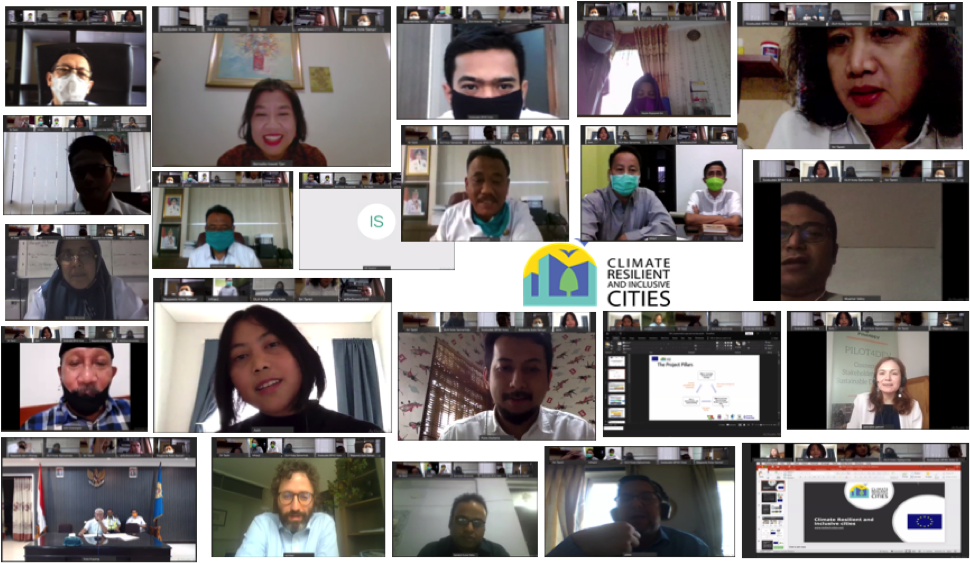Tackling global climate change requires commitment, careful planning, collaboration and appropriate tools implemented starting from a city level. This is the key takeaway from the online focused group discussion (e-FGD) moderated by Asih Budiati, Climate Resilient and Inclusive Cities (CRIC) Project Manager from UCLG ASPAC on April 29, where 37 participants discussed plans and framework to implement Climate Resilient and Inclusive Cities (CRIC) Project in ten Indonesian cities.

CRIC is a five-year project funded by the European Union aiming to provide a long-term triangular cooperation that involves cities in Europe, South Asia and Southeast Asia. The e-FGD invited representatives from ten pilot cities, Vebry Muamar from the European Union Delegation, Sri Tantri Arundhati from the Indonesia Ministry of Environment and Forestry (MoEF) and consortium members: Dr. Pascaline Gaborit (Pilot4DEV), Paolo Marengo (ACR+), Professor Youssef Diab (Gustave Eiffel University) and Kamlesh Kumar Patha (AIILSG).
The project results will help Indonesia achieve Sustainable Development Goals: 6 (clean water and sanitation), 11 (sustainable cities and communities), 13 (climate action) and 17 (partnership).
The e-FGD underlined key factors to project success, one of which is country’s commitment to achieve the NDCs target. Sri Tantri Arundhati from the MoEF said that the Indonesian Government has made low carbon and climate resilient development path a priority in its Medium-Term Development Plan since 2015. “Indonesia has put climate resilience on its development agenda, especially in an attempt to reduce economic risks that may incur due to climate-related disasters. To do so, regional planning agency at a city level plays a crucial role to calculate the potential economic loss and develop plans to prevent it,” she said.
The MoEF has issued regulations as guidance for cities to develop and integrate their climate action plans, such as the Ministerial Regulation No.3/2016 concerning adaptation actions and the Ministerial Regulation No.7/2018 concerning climate change vulnerability, risks and impact assessment.
The importance of collaboration was also emphasised during the e-FGD. Collaboration among cities as well as among consortium members is a defining strength to ensure the transfer of knowledge and tools. “The collaboration will include skills upgrading and tools implementation such as early warning system, waste management, to name some. With city-to-city collaboration and also between city and national government, action taken at a national level will bring impact at a global level,” said the Secretary General of UCLG ASPAC Dr. Bernadia Tjandradewi.
The project is carried out through knowledge exchange between cities, tools testing in pilot cities, joint training and workshops. The e-FGD highlighted that the testing tools will be adjusted to meet the needs and characteristics of each cities. The CRIC team and expert consultants will develop an urban analysis report to map resources, needs and priority issues in pilot cities to ensure that applied tools really answer the problems and challenges of the cities.
Another noteworthy point stressed during the session was digitization of each activity as a way to collect and utilise knowledge. This e-FGD serves as a tool to keep cities engaged and informed amid the COVID-19 pandemic. Through online discussion, knowledge-exchange processes between cities and partners are expected to continue.

